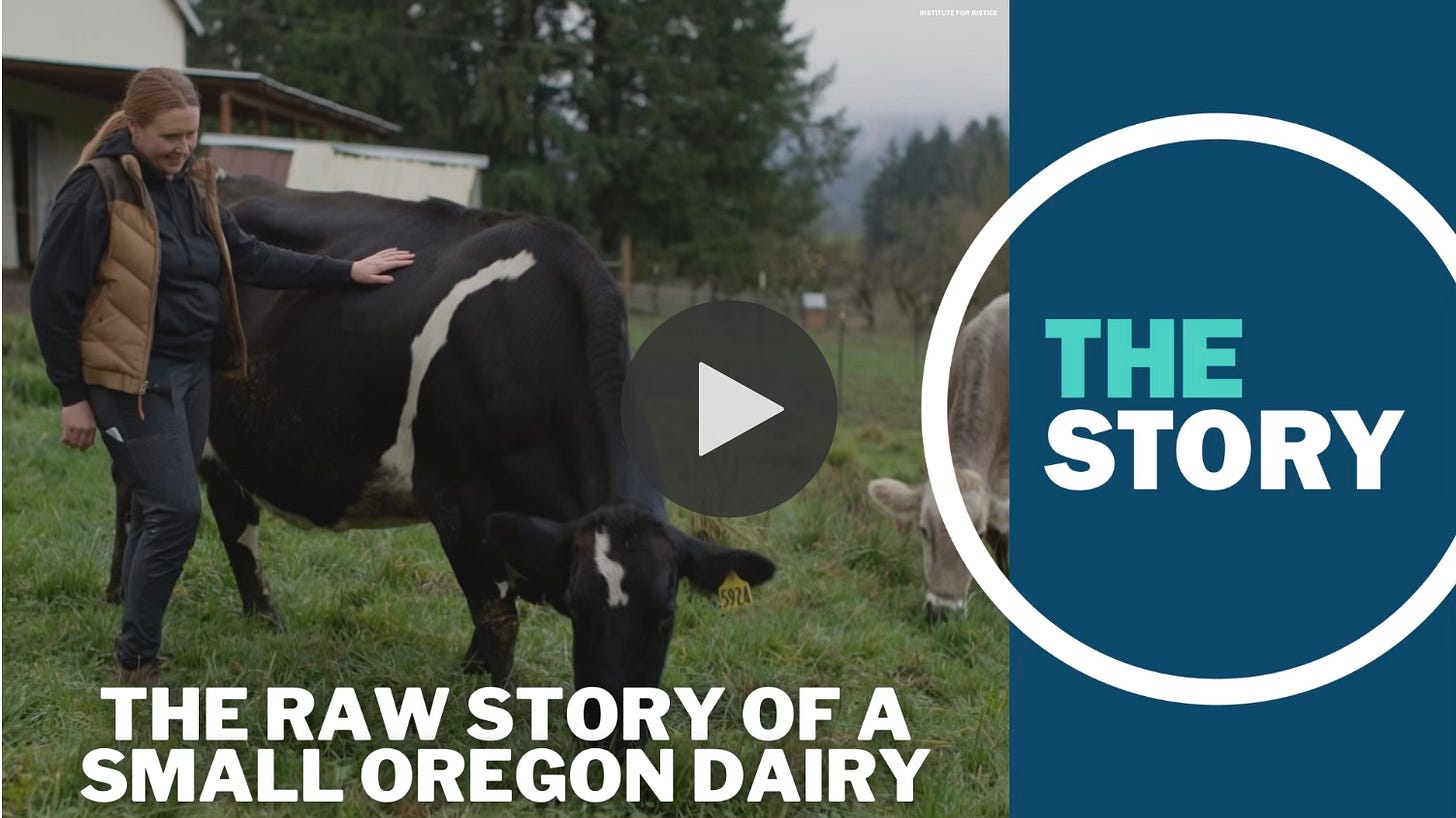Correcting the Record: How KGW8 Misrepresented Yanasa TV’s Reporting on Oregon’s Raw Milk Debate
Originally Published June 25, 2024 Pat Dooris and Jamie Parfitt
In a recent broadcast and accompanying article, KGW8—owned by corporate media giant Tegna—published a story that not only misrepresented the reporting of Yanasa TV, but actively distorted the facts behind Oregon’s regulatory battle with small dairy farmers. The headline, “After fighting against state regulations, a small Oregon dairy farm became the center of a web of misinformation,”implies deliberate deception by Charlie Rankin of Yanasa TV — a claim that falls apart under scrutiny.
This article aims to set the record straight.

A Pattern of Misrepresentation
The KGW8 article accuses Rankin of using “misinformation” to stir public fear, yet fails to accurately represent the content or intent of his reporting. Their coverage selectively quotes Rankin, strips critical context, and ignores the broader issues raised in his video—particularly the real regulatory burden Oregon’s small dairies are facing.
For example, Rankin’s statement about farms being "effectively shut down" was a summary of interviews with affected farmers, not a claim that the entire raw milk industry or specifically Sarah King, the owner of a tiny Yamhill County dairy farm was being forcibly closed. The term “effectively” was important—it indicated that farmers were being pushed out of operation not by direct bans, but by excessive regulatory and financial pressures that make it impossible to continue. KGW8 glosses over these nuances in favor of a hit-piece narrative.
What the KGW8 Report Leaves Out
Yanasa TV has consistently reported that Oregon’s regulations—especially CAFO (Confined Animal Feeding Operation) permit requirements—are creating an unmanageable situation for small dairy farmers. These permits can cost over $155,000 and require infrastructure that is unsustainable for small operations. While the state eventually announced a temporary easing of enforcement in March 2023, this came only after widespread confusion, a federal lawsuit, and months of chaos.
Yet KGW8 frames the state as being misunderstood rather than overreaching, and paints concerned citizens and independent journalists as the real threat.
Media Consolidation and the Illusion of Diversity
It’s no coincidence that this kind of narrative originates from a station owned by Tegna, one of the largest media conglomerates in the U.S., whose major shareholders include Vanguard and BlackRock—the same entities that dominate ownership in Sinclair, Nexstar, and others. These groups don't just own stations—they influence narratives.
KGW8's reporting exemplifies a growing problem: corporate media using its platform to silence independent voices that challenge state and corporate alignment. Rankin's reporting, while sometimes pointed, is grounded in interviews with farmers, legal documents, and real on-the-ground conditions. It may not fit the polished PR version of events, but that’s precisely what makes it valuable.
The Role of Independent Journalism
The rise of independent journalism isn’t a mistake—it’s a response. Since the early 2010s, public trust in legacy media has plummeted, and rightly so. Stories like KGW8’s are part of the reason. Rather than investigate both sides, they vilify dissent. Rather than explore complexities, they simplify with one-sided fact-checks designed to delegitimize anyone who steps outside the mainstream script.
In contrast, Yanasa TV aims to amplify voices of rural America—especially those being silenced by bureaucracy and media disinterest. We don’t claim to have all the answers, but we insist on asking the hard questions.
What’s Really Happening in Oregon
Legal Gray Area: Herd share dairies operate via private contracts, allowing consumers to access raw milk legally. However, recent enforcement actions by the state blurred legal lines and punished small farms like they were large-scale CAFOs.
Overregulation: The cost and complexity of compliance has driven many farms to cease operations or face unsustainable debt.
Legal Action: Multiple small dairies have filed lawsuits under the 14th Amendment, claiming violations of due process and equal protection under the law.
Public Confusion: Oregon's back-and-forth enforcement and policy shifts have caused significant confusion among both farmers and regulators.
Final Thoughts
KGW8’s article accuses Yanasa TV of misleading the public. But the real question is: Who benefits from silencing small farms and the independent media that cover them?
The people of Oregon—and the broader agricultural community—deserve real journalism, not corporate PR. Independent media like Yanasa TV is not the enemy. We are a necessary counterbalance in a system where power has become increasingly centralized.
We will continue to stand with small farmers, tell their stories, and challenge the narrative—no matter how inconvenient it may be for those in power.


